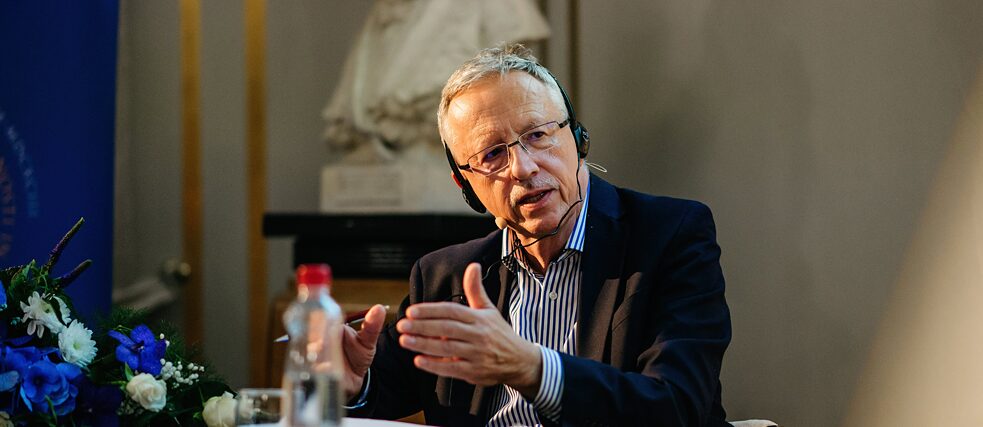
If the best way to learn languages is by communicating, it makes sense to turn to our foreign-language neighbours and learn their language from them and with them, or rather teach each other our languages. [...] So it’s up to neighbouring nations to work together to develop new, sustainable structures to this end. Why shouldn't Carinthian Slovenes study in Slovenia and, the other way round, Slovenes in Austria? Such “joint studies” with “double degrees” already exist in some countries – and should be extended.[...] But it’s also important to develop knowledge about multilingualism and a culture of bilingualism and multilingualism, for which we need to revisit, process and discuss our experiences of dealing with bilingualism and multilingualism down through the generations. This will be a painful process in some cases, but it can prove an essential contribution towards coming to terms with the past.
Dr. Georg Gombos